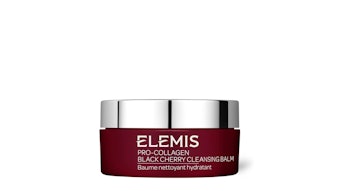Before you even begin to negotiate with your skin care vendors, determine what it is you want to negotiate. Because the goal is to build a long-lasting relationship with your suppliers, pick and choose battles in order to have more ammunition for future negotiations.
Every time a purchase is made from a vendor, you are buying a product, such as supplies or equipment, for a certain price that may or may not include tax; shipping and handling; return fees; replacement products for defective and returned merchandise; and current and future incentives.
The following details should be negotiated early in the relationship:
Samples. One of the best ways to determine if you want to carry a product is to ask the vendors for samples for your clients and employees. There are ways the supplier can provide trial sizes to break down into smaller samples for your clients. This helps you promote the product and identify the level of client satisfaction in the product.
Financing. The best type of financing is internally with the vendor directly. It is best if the vendor allows you to have an extended financing policy, such as 60–90 days, and then allows you to pay via credit card, thereby allowing an additional 30–45 days to actually pay the balance in full. If an extended financing policy is not available, see if there is a discount, usually 2–10%, if the order is paid within 10 days of the invoice. This can save a sum of money throughout time as the balances add up.
Rebates. An additional way of receiving money back for total volume purchases is through rebates. The greater the volume, the greater the rebate. If the supplier doesn’t offer rebates, negotiate the wholesale price in advance, taking volume purchasing into consideration. Most vendors would rather give you a better price for volume instead of having you go to other vendors, and it keeps you locked into their products, as well.
Shipping and handling. When it comes time for you to take your profit percentage into consideration, remember the shipping and handling fees can be a minimum of 10% of the order. When you have a specialty item or an item that does not meet the required minimum purchase with your vendor, there may be an additional service charge. Be careful—shipping and handling, and minimum order charges have been known to exceed the cost of the purchase alone in certain instances. These need to be negotiated upfront.
Return products. Have a policy with your vendors for return items. Determine who is responsible for the postage/freight to and from your facility and, most importantly, if there is a service charge for returned items. Items may need to be returned for any number of reasons, including defective packaging, past expiration date, broken packaging or simply client dissatisfaction. Many vendors will not accept client returns, and this must be negotiated, because you cannot guarantee a client’s satisfaction or lack of allergy to a product.
Cooperative advertising money. If there are funds available from your supplier for marketing and advertising costs, enlist the support of your vendor representative. Many companies offer advertising dollars for promoting their product. This isn’t always made public, but may be made available if you ask about it.
Credit card and banking fees. Yours is a business with office-related expenses. Every time you sell a product or service, someone has to pay for it. Minimize the fees you have to pay in order to process the revenue. Many clients pay with credit cards, so negotiate the best rates possible. It is also not impossible to negotiate with your banker for a no-fee checking account, and no per-item/per-deposit fees, as well.
If you find you don’t have the wherewithal to negotiate properly, enlist the support of a consultant that will do this for you. Consultants are trained professionals who know the angles and twists associated with your business.
Jay A. Shorr is the founder and managing partner of The Best Medical Business Solutions, a professional motivational speaker, an advisor to the Certified Aesthetic Consultant program and a certified medical business manager from Florida Atlantic University. He can be reached at [email protected].










